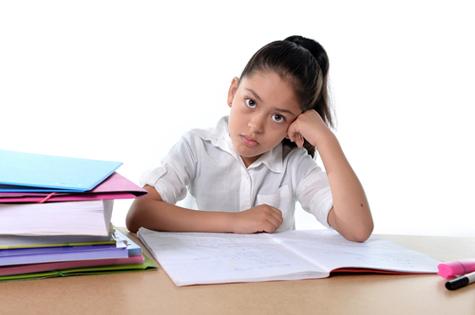If a child doesn’t do well at school, whose fault is it? Is it the homes they come from, the breakfasts they didn’t eat, the books they weren’t read?
Is it the politicians who fail to fund equitably? Or is it our society that perpetuates inequities? Is it the curriculum and the relentless push to teach the content rather than the child which leaves some behind? Is it the increased focus on standardised test performance that strips the joy out of learning? Is it the quality of the teachers?
It could be any of these, or all of these - and there have been plenty of arguments put forward for each. However, whilst politicians, bureaucrats and academics debate whose fault it is, one thing is certain, if a child doesn’t do well at school it definitely is not their fault.
But unfortunately it is the children who carry the burden of failure. They carry the stigma of the Ds on their report card, and the other public declarations of their failings in the many subtle, and not so subtle, forms this takes - from their placement in the Wombats reading group to the lunchtime detentions for not getting their classwork finished. They carry the burden of feeling they must be dumb and they carry it for many many years.
Who does well at school?
To do well at school you need to be a puzzle piece that fits neatly in the puzzle frame. The closer your home experiences, your language, your knowledge and your values are to that of your school and your teachers - the easier it is for you to do well at school. The closer your learning style to your teacher’s teaching style - the easier it is for you to do well at school.
Unfortunately, if you are not prepared or able to perform in ways the school wants, then it is likely you won’t do well at school.
There isn’t much room for square pegs in the round holes of school.
Some stories from the classroom
When I was a primary school teacher, I also worked in the evenings at my husband’s mini market. Every other evening a 10 year old girl would bring her two little brothers into the shop, and she would stretch $5 to buy the ingredients for a meal for them. She showed enormous skill - management skills, financial skills, relationship skills, leadership skills, all of which are indicative of the knowledge and skills that schools value. But at school she was known as the poor little kid who didn’t have a school uniform, whose hair was often dirty, who never had her homework done and who struggled with reading. Staffroom chatter tut tutted the parenting and seemed oblivious to what this girl could do.
It seemed inevitable that this little girl would get further behind as the gap between what she knew and did, and what school wanted her to know and do grew ever wider. Whose fault was this? Her parents’? Society’s? Her teachers’? It certainly was not her fault. But it was she who carried the burden.
And what about the little boy who begins school so keen and chatty; a bright little personality but he struggles with reading. Mum and dad do all the “right” things - they read to him, they give him a healthy breakfast and a clean school uniform but he just doesn’t get reading. As the other kids get rewards for reading well and reading lots, he is getting more and more frustrated. Soon he isn’t the happy little boy who started school, he is being naughty and disruptive, or sullen and silent.
Whose fault is this? His parents’? The curriculum? His teachers'? The bureaucrats who set arbitrary benchmarks for reading by the end of the first year of school? It certainly is not the five year old boy’s fault. But he will be the one who bears the consequences of not being taught in the way he needs to learn.
What could we do differently?
School is a strange sort of club. We let everyone in, but not everyone gets equal access to the facilities.
All kids bring knowledge, experience, language and values to school - but it doesn’t always match those of the school, and that makes it harder to do well at school. There are two solutions to this mismatch:
1. Value and use what children bring to school, broadening our definition of what counts as worthy knowledge.
2. Work harder to give all students the knowledge and skills that schools value.
A combination of the two is required. Students need to be explicitly taught the skills and knowledge that will give them success at school, and that means knowing each student well - understanding what they already know and how they learn.
This requires genuine communication between homes and schools - not the kind where school simply tries to make home look and sound more like school, but the kind where school is interested in home, and values it and seeks to include it in school.
And parents need to remember schools can’t work productively with their children without their help. Don’t hold back - get involved.
![]()
* * *
This article was originally published on The Conversation.


















__small.png)










